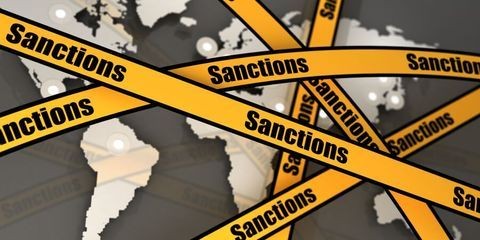Businesses Face Price Gouging Concerns Amid COVID-19 Crisis
Client Alert | 2 min read | 03.31.20
As the COVID-19 crisis unfolds, price gouging concerns are impacting businesses in different ways. Two pressing questions we’ve heard so far include:
- What are my company’s rights and remedies if a supplier raises prices? Companies want to know what recourse they may have when a supplier increases prices on products that are critical to continuing business operations.
- What if my business needs to make price changes? Will this be viewed as price gouging? Businesses need to understand how they can protect themselves from accusations of price gouging as they discontinue existing promotional prices or otherwise change prices to account for events such as limited supplies or increased prices from suppliers.
These are questions that many businesses are facing, or will face in the coming months. Consider these tips to help your business avoid unnecessary scrutiny:
- Supplier Concerns - Review contracts with suppliers to understand your rights and obligations as they relate to pricing and performance. Even in the absence of a contractual claim, you may still have other statutory and common law rights and remedies if suppliers significantly raise prices. The statutory provisions vary significantly in this area—some may only be limited to retail transactions while others may impact supply chain transactions. Also, in some incidents, while a law may be applicable, it may not provide any private remedy. On the other hand, these concerns can be brought to the attention of the proper regulators.
- Contemplating a price increase - Review and analyze state laws that relate to price gouging, including statements of emergency. While many of these laws only apply to “essential services,” others are broadly written and cover all goods and services. In addition, most states have far reaching unfair and deceptive acts and practices statutes that likely also apply. The challenge for businesses is that different state laws impose different obligations, and vary significantly. Some set a specific threshold (prices cannot increase more than 10%), while others use very vague standards. If a price increase is planned, businesses must assess whether or not their products are covered, and if so, what the limitations on price increases are.
We have been carefully reviewing and analyzing existing and new state laws on price gouging because price gouging has already begun to spawn significant State Attorney General enforcement activity. We will continue to closely monitoring all price gouging enforcement activities. We expect this issue to present new legal challenges, and will provide routine updates.
Contacts
Insights
Client Alert | 14 min read | 05.03.24
On April 24, 2024, President Biden signed into law the National Security Supplemental fiscal package, which includes significant new sanctions and export controls authorities. Although the U.S. foreign aid commitments for Ukraine, Israel, and Taiwan headline the new law, it also (1) expands the statute of limitations for U.S. sanctions violations; (2) includes new authorities for the President to coordinate sanctions efforts with the European Union and the United Kingdom; (3) expands sanctions and export controls on Iran (including some targeted at Chinese financial institutions); and (4) includes new sanctions authorities targeting terror groups.
Client Alert | 3 min read | 05.03.24
EEOC’s New “Enforcement Guidance on Harassment in the Workplace” Hits Hot-Button Issues
Client Alert | 11 min read | 05.03.24
FDA Moves Forward on Laboratory Developed Tests while Stakeholders and Congress Weigh Next Steps
Client Alert | 1 min read | 05.03.24




